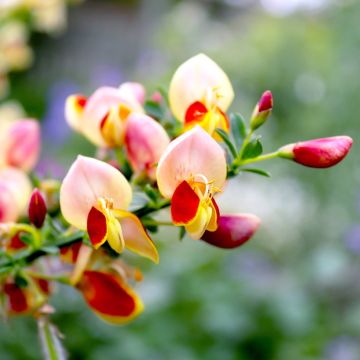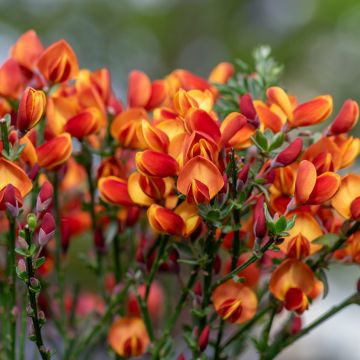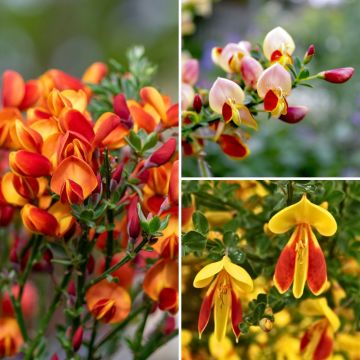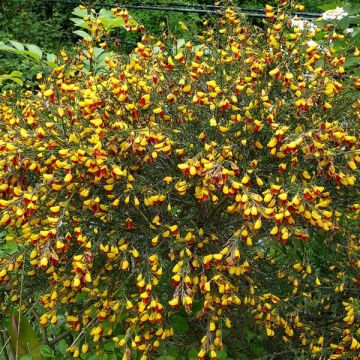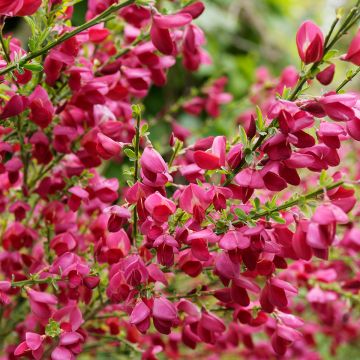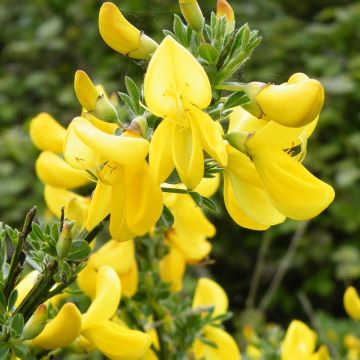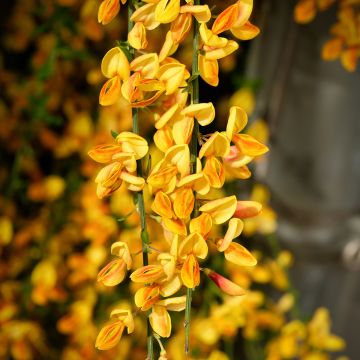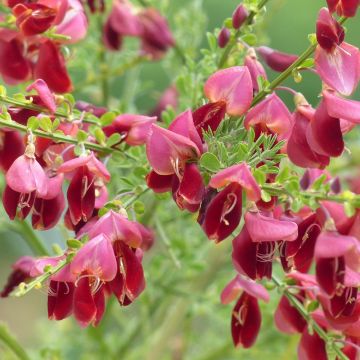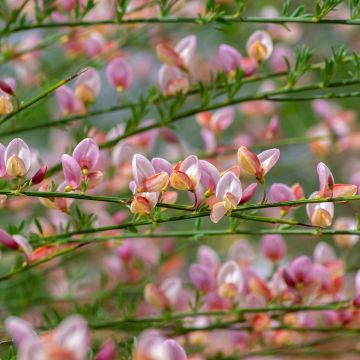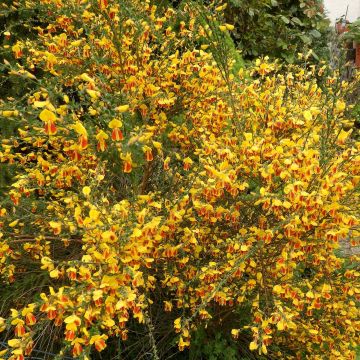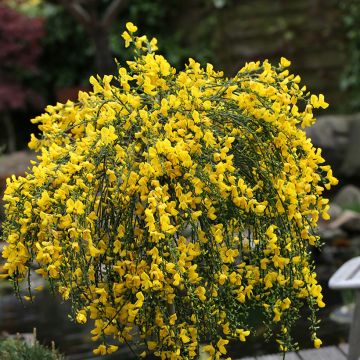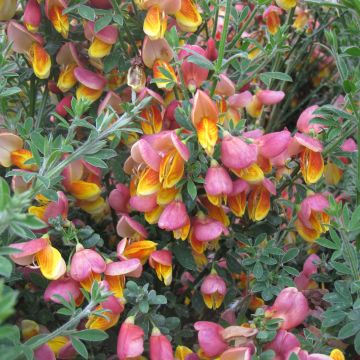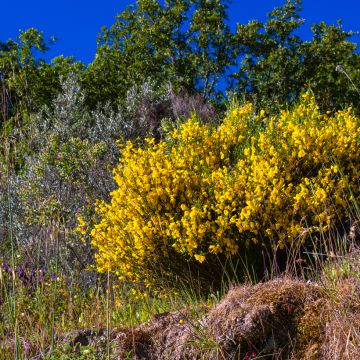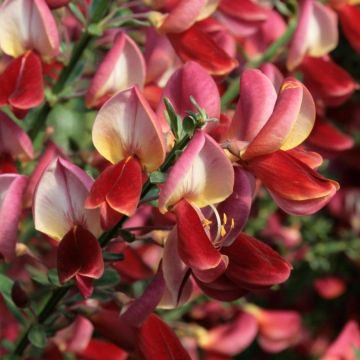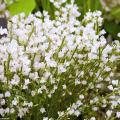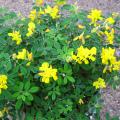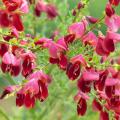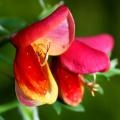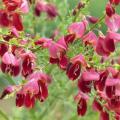Broom - Cytisus scoparius
Would this plant suit my garden? Set up your Plantfit profile →
Available in 2 sizes
Available in 1 sizes
Available in 0 sizes
Available in 2 sizes
Available in 1 sizes
Available in 1 sizes
Available in 1 sizes
Available in 1 sizes
Available in 1 sizes
Available in 1 sizes
Available in 1 sizes
Available in 1 sizes
Available in 1 sizes
Available in 1 sizes
Available in 1 sizes
Available in 1 sizes
Our range of Broom (Cytisus scoparius). Known for its abundant and bright yellow flowering, broom is an easy bush, typical of poor and sandy soils. Among the most popular cultivars, Cytisus 'Zeelandia' is covered with a multitude of lilac and cream flowers at the end of spring, 'Lena' stands out with its bicolour red-orange and yellow flowers. 'Boskoop Ruby' offers ruby red flowering, while 'Hollandia' provides a generous blooming of flowers mixing cherry red, pink, and cream. For a bolder touch, Cytisus scoparius 'Andreanus' produces yellow flowers adorned with red lips, brilliantly bicoloured.
Broom is characterised by its fine, often green stems, and forms a large bushy clump 1.5 to 2 metres tall. Its leaves are small, trifoliate, and its butterfly-like flowers appear in spring, forming dense and colourful clusters. Fast-growing but with a relatively short lifespan, the bush is ideal for quickly adding structure to the garden.
Brooms are perfect for structuring flowerbeds or stabilising slopes due to their resilience and low soil requirements. They prefer sunny exposures and well-drained soils, and require little maintenance.
Haven't found what you were looking for?































